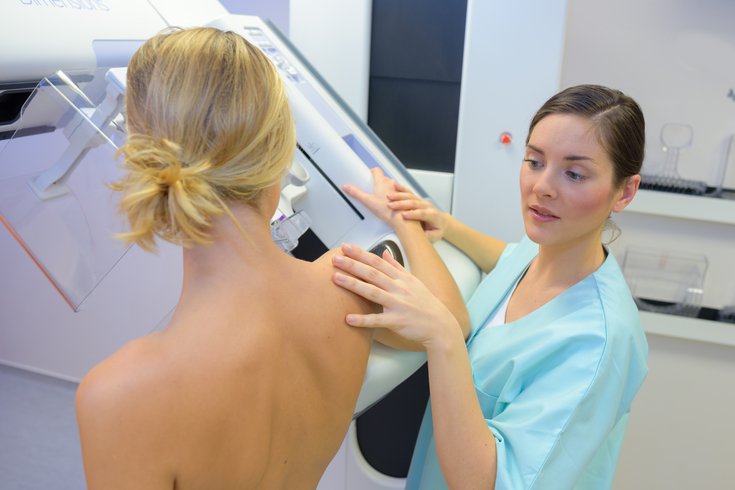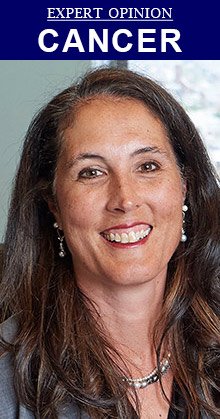
October 02, 2020
 Source/Image licensed from Ingram Image
Source/Image licensed from Ingram Image
Women at average risk for breast cancer should have a mammogram every one to two years starting at age 40, health experts recommend.
At the height of the COVID-19 pandemic, many nonessential medical visits, including routine cancer screening such as mammograms and colonoscopies, were temporarily postponed in almost all health systems. This impact of delayed cancer screening is forecasted to be grim.
The data are clear – early detection saves lives, and the time to resume cancer screening is now.
The National Cancer Institute recently projected 10,000 additional deaths in the United States due to breast and colorectal cancers alone over the next 10 years as a result of pandemic-related delays in diagnosis and treatment. There also have been deferred screenings for skin cancer, lung cancer and cervical cancer, which will significantly add to the number of cancer deaths that will regretfully emerge as a result of delayed cancer detection.
Karen E. Knudsen, Ph.D.
Regular screenings are critical for overall health and provide some of the most effective means to diagnose cancer at an early stage, when it is much more likely the cancer can be successfully treated, and even cured.
Concern about visiting hospitals or doctors' offices during the pandemic is understandable, but the academic health care systems have learned much during the COVID-19 era, and have adapted data-driven approaches to ensure the safety of patients and care teams.
The Sidney Kimmel Cancer Center – Jefferson Health has strict protocols in place to limit exposure to the coronavirus during cancer screenings and treatment appointments throughout all four SKCC Advanced Care Hubs in the Greater Philadelphia region, and patients benefit from the same safeguards in place throughout Jefferson Health.
Talk to your health care provider about when you should begin recommended screenings based on your personal health, family history and risk factors. They also may recommend additional screenings, such as for lung or skin cancers.
While screening guidelines can be confusing, the following evidence-based general screening guidelines are in place at Jefferson Health:
• Breast Cancer: We recommend that women at average risk for breast cancer should have a mammogram every one to two years starting at age 40. Women at moderate or high risk should consider beginning mammograms earlier than 40 or having additional screening tests, such as an MRI.
• Cervical Cancer: Women aged 21-29 should get a Pap test every three years to screen for cervical cancer. Women aged 30-65 should be screened for cervical cancer every three years with a Pap test or every five years with a Pap test and high-risk HPV co-testing.
• Colorectal Cancer: Men and women of average risk for colorectal cancer should have a colonoscopy every 10 years beginning at age 50. African Americans or anyone with a first-degree relative who has had colorectal cancer should begin screening at age 45.
• Lung Cancer: Men and women aged 55-80 should consider getting screened for lung cancer with a low-dose CT scan if they have at least a 30-pack year smoking history or have smoked within the last 15 years. Those with at least a 20-pack year smoking history in addition to a secondary risk factor such as asbestos or radon exposure, family history of lung cancer, personal cancer history, COPD, or pulmonary fibrosis, should consider screening at age 50.
• Prostate Cancer: Men at average risk for prostate cancer should consider screening at age 55. African American men and those with a family history of prostate cancer should begin screening at age 45.
• Skin Cancer: Men and women aged 35-75 should get an annual skin exam if they have at least one risk factor: personal history of melanoma or carcinoma; family history of melanoma; history of blistering or peeling sunburns or indoor tanning; severely sun-damaged skin; light skin and blonde or red hair, more than 40 moles or two or more unusual moles, and many freckles; or decreased immune function.
For more information on cancer screening guidelines, click here.
So, do yourself the greatest possible kindness, and get screened. Early detection saves lives!
 ./.
./.